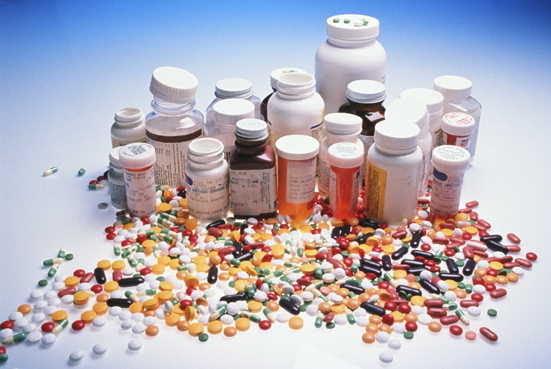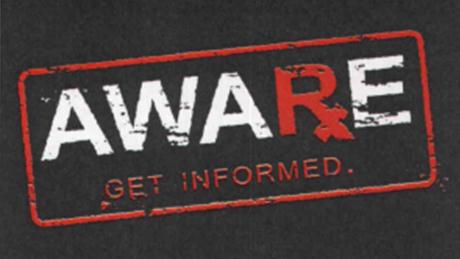As a medical practitioner, I’ve been trained from day one to be excruciatingly careful with controlled substances at work. We painstakingly log every tenth of a cc of morphine, keep impeccable logs for the DEA, and keep all that stuff locked up tighter than the gold bars in the US Bullion Depository.
We do it not because we like making our lives- and yours- all that more difficult, but because unfortunately controlled substance abuse is a huge problem. And many/ most of the controlled substances we use in veterinary medicine are also used by people, correctly and incorrectly. It’s a godsend to be able to provide these powerful drugs for our canine and feline friends, but I know as a profession we are somewhat lacking sometimes in making it clear to owners just how careful they should be with these prescriptions.
As strict as I am about my prescription-writing tendencies for veterinary clients, I realized my own compliance as a patient was less than stellar. I was shocked to find how much medication I’ve accumulated over the years through injuries, childbirth, and surgeries when I went through our cabinets in preparation for an open house to put it all away and out of the hands of strangers.
It’s hard to know what else to do with a long expired bottle of Tylenol with codeine, or that bottle of chemo drugs I never finished with Emmett. Like many people, I’ve just hung onto it. Prescription drug abuse really is a terrible problem- nearly 15% of high school students misuse prescription controlled substances- and it really is important for everyone to have an easy way to dispose of leftover medications so they are not a temptation for kids too impulsive to understand the consequences. 12-13 year olds- just babies, really- are abusing these substances on a regular basis, and it’s heartbreaking.
This Saturday is your solution.
Fortunately, the National Association of Boards of Pharmacy Foundation, in conjunction with the DEA, has designated April 28th as National Prescription Drug Take Back Day. I was contacted by the NABP specifically to let you all know that they WANT you to bring back your dog and cat meds. The take-back service is free and anonymous, with no questions asked. Sites will accept tablets, capsules, and all other solid dosage forms of unwanted medication. There’s no distinction between veterinary and human prescriptions at this event. Sites will accept pills, both prescription and nonprescription, for disposal.
I had the opportunity to interview the Executive Director of the National Association of Boards of Pharmacy, Dr. Catizone on the dangers of prescription drug abuse. Not only is Dr. Catizone the Executive Director of the National Association of Boards of Pharmacy (NABP), but he is a licensed pharmacist and currently serves as a Governor of the Pharmacy Technician Certification Board (PTCB) Board of Directors and Chair of the PTCB Certification Council. Dr. Catizone is regularly called to serve as an expert witness for the US Government in the areas of pharmacy practice and regulation on both the state and national level issues.
Below is my interview with Dr. Catizone. For more information on prevention and the April 28 DEA Take-Back Day visit www.AWARERX.org or www.facebook.com/AWARxE.
What is the main reason National Drug Take Back day was started?
Catizone:
Prescription drug abuse has reached epidemic proportions across the country. In 2010, 7 million people aged 12 or older abused prescription drugs, according to the Substance Abuse and Mental Health Services Administration, a government agency that conducts a national survey on related topics each year.
The same survey showed that over 50% of people abusing these drugs got them from friends or family for free. Often those who abuse drugs, including teens, take them right of the medicine cabinet. This can include medications prescribed for pets.
Ridding the home of unused, expired, or unneeded medications, helps to prevent the drugs from falling into the wrong hands. Currently, law enforcement must be present if a person wishes to dispose of prescription controlled substance medications, such as certain pain pills. To provide opportunities for legal disposal of unneeded controlled substance medications, the Drug Enforcement Administration (DEA) began coordinating National Prescription Drug Take-Back events in September 2010. With locations in every state across the county, consumers disposed of 995,185 pounds (498.5 tons) of unwanted medication during the first three DEA Take-Back Days, illustrating the need for this service.
Why should people take drugs back as opposed to, say, throwing them away or flushing them?
Catizone:
Flushing certain medications or improper disposal in the garbage can lead to safety and environmental hazards. When drugs are brought to an authorized DEA collection site, or other legal disposal program, they are processed for safe destruction.
If there are no drug disposal sites near you, there are options for disposing of drugs at home. The information that comes with your prescription may provide instructions on home disposal. Only some medications should be flushed down the toilet and the US Food and Drug Administration has a list of these drugs on its Web site. If there are no instructions for disposal you can throw the drugs in your home garbage. But first, take them out of the container and mix them with an undesirable substance like coffee grounds or cat litter. Seal the mixture in a sealable bag, empty can, or other container that can be disposed of in the garbage.
More details about drug disposal programs are available on the AWARxE Medication Disposal page.
Why should pet owners be concerned about this issue?
Catizone:
As noted above, often those who abuse drugs, including teens, take them right of the medicine cabinet. This can include medications prescribed for pets.
Proper disposal of unneeded medications helps prevent the drugs from falling into the wrong hands, and also helps protect the environment by keeping drugs out of the local water system and the local environment.
FDA does recommend that certain drugs are flushed to prevent danger to people and pets in the home. FDA has determined that the risks of accidental ingestion of these select medications, outweighs the small risk to the environment. A link to the list of drugs that should be flushed for disposal, as well as additional information, is available on the Medication Disposal page of the AWARxE Web site.
What is the most compelling or memorable story you know of regarding the dangers of prescription drug abuse?
Catizone:
Justin Pearson, a resident of St Cloud, MN, died tragically at age 24 because of a prescription drug overdose and his story was the inspiration for the AWARxE campaign. Justin had struggled with prescription drug addiction, and died on December 25, 2006, after taking a mix of prescription drugs which he ordered from an illegal Web site. Taking the drugs without a doctor’s prescription, and mixing a high dose of different prescription drugs led to Justin’s death.
More information about Justin’s story is available on the home page of the AWARxE Web site.
What is the most common veterinary drug of abuse?
Catizone:
Pain relievers and tranquilizers are two of the most commonly abused drugs, as reported in the Substance Abuse and Mental Health Services Administration National Survey, and both types of drugs are used in the practice of human and veterinary medicine.
DEA has also indicated that buprenorphine and ketamine are drugs of abuse; each of these drugs is a prescription controlled substance approved for human and veterinary use.
Links for cited Web pages:
- Fourth DEA National Prescription Drug Take-Back Day: http://www.awarerx.org/DEADrugTakeBack.php
- Medication Disposal: http://www.awarerx.org/medDisposal.php
- FDA Drug Disposal Information: http://www.fda.gov/Drugs/ResourcesForYou/Consumers/BuyingUsingMedicineSafely/EnsuringSafeUseofMedicine/SafeDisposalofMedicines/ucm186187.htm#MEDICINES
- Substance Abuse and Mental Health Services Administration 2010 National Survey Results: http://oas.samhsa.gov/NSDUH/2k10NSDUH/2k10Results.htm
Find your local DEA collection site here.
For all the topics I’m happy to joke about, this is one that I take very seriously. I have seen too many bright and wonderful people have their lives destroyed by prescription drug abuse. So please, mark your calendar for Saturday and get rid of your leftovers. Or am I the only one who has a pile of half empty bottles in the cabinet?
By the way, Dr. Catizone’s idea for disposing of drugs in cat litter is pretty brilliant. Is there no end to the uses for cat litter?








No, you aren’t the only one with unused pill bottles lying around. Thanks for the reminder of this very important service.
Wow, thanks for the info! I have so much stuff that I need to get rid of and I hadn’t heard anything about this event.
I have to say that I am glad that I don’t have this problem. I have a high tolerance for pain and have never had a pain script filled, so no leftovers. When my pets die, any medication I immediately give to the local shelter – since it’s usually long term meds, such as thyroid or joint meds, they really appreciate it. I have always finished out my meds since if I do get a med it is a antibiotic. However I remember what we went through when my Dad died. There was no place to drop the meds off and we had to call around to discover safe disposal. Long story only to say thanks! I really appreciate the heads up for the web site.
And nothing in Maryland! I have a lot of meds I have been holding on to, until I find proper disposal. I’ve got a bunch of sharps too, from horse meds.
Sharps are a pain to dispose of. That was a terrible and unintended pun, by the way.
I gave our chemo drugs back to the vet for disposal when Emma stopped taking them. I didn’t know what else to do with them, since they came with the yellow bio-hazard warning label. Thank you for posting this, Dr. V. It is important stuff 🙂
The chemo ones are especially tricky.
My local police station has a depository box for unwanted medications in their lobby, and it’s open all day, every day. A wonderful idea. Stock pilling gold bullion is a good idea, but not expired meds!